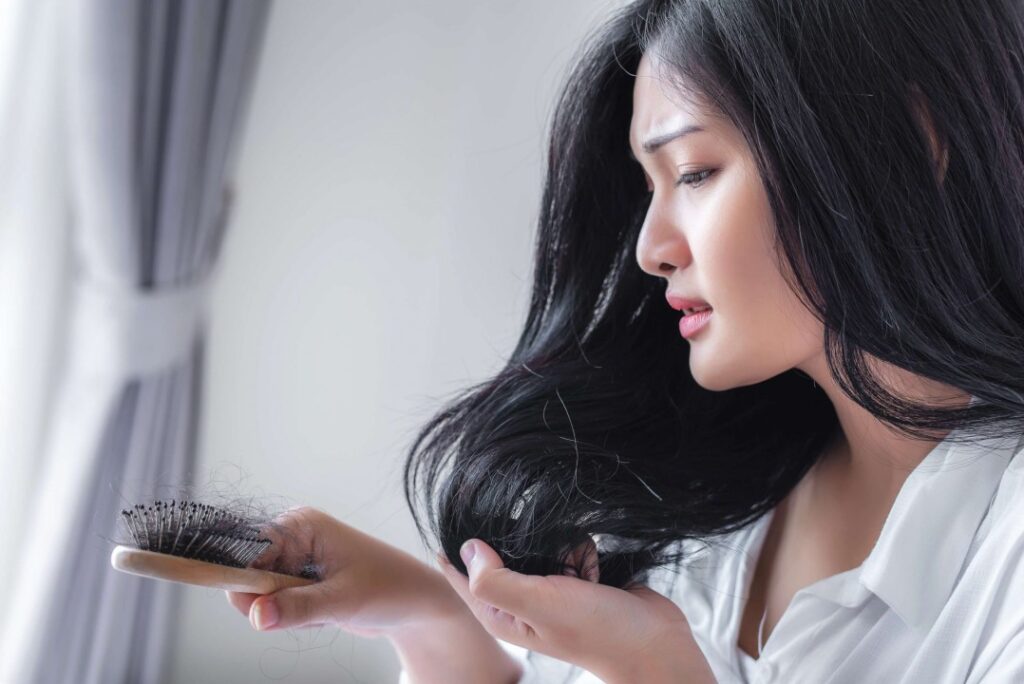Winter is here, and while it brings cozy sweaters and warm drinks, it also ushers in a not-so-welcome guest: hair fall. For women, this seasonal concern can be frustrating and sometimes alarming. But why does winter cause hair fall, and what can be done to manage it?

Why Does Hair Fall Increase During Winter?
The colder months affect your hair and scalp in more ways than you might imagine. Here are the main culprits:
- Dry Scalp
Winter air lacks humidity, and indoor heating systems further strip moisture from your surroundings. This leads to a dry, flaky scalp, which can weaken hair roots and trigger hair fall. - Lack of Sunlight
Reduced exposure to sunlight in winter can lower Vitamin D levels, which play a crucial role in hair growth. A deficiency might lead to increased hair shedding. - Reduced Blood Circulation
Cold weather can cause blood vessels to constrict, reducing circulation to the scalp. This lack of nourishment weakens hair follicles, making them more prone to breakage. - Frequent Use of Hot Water
While a hot shower feels heavenly in winter, it can strip your hair of its natural oils, making it dry, brittle, and more prone to falling out.
How to Combat Winter Hair Fall?
Don’t let winter blues take a toll on your tresses. Follow these tips to keep hair fall at bay:
- Hydrate Your Scalp
Use a nourishing hair oil like coconut, almond, or argan oil. Regular oil massages can improve blood circulation and restore moisture to your scalp. - Switch to Mild Shampoos
Avoid harsh shampoos that can worsen dryness. Opt for sulfate-free or moisturizing shampoos enriched with natural ingredients. - Stay Warm, but Avoid Overheating
Wear a hat or scarf to protect your hair from cold winds, but make sure it’s not too tight to avoid restricting blood flow to your scalp. - Improve Your Diet
Include hair-friendly nutrients like biotin, iron, omega-3 fatty acids, and Vitamin D in your meals. Leafy greens, nuts, fish, and eggs are excellent options. - Avoid Overwashing
Washing your hair too often in winter can lead to excessive dryness. Aim for 2–3 washes per week to maintain a healthy moisture balance. - Use Lukewarm Water
Stick to lukewarm water for hair washes to prevent stripping essential oils while staying comfortable.
Preventative Care for Healthy Hair All Winter Long
Prevention is always better than cure. Adopt these habits for long-term hair health:
- Deep Conditioning Treatments: Use a deep-conditioning hair mask weekly to lock in moisture.
- Humidifiers: Invest in a humidifier to combat the dry indoor air.
- Regular Trims: Trim split ends every 6–8 weeks to prevent further damage.
- Gentle Brushing: Use a wide-toothed comb and avoid tugging at wet hair.





